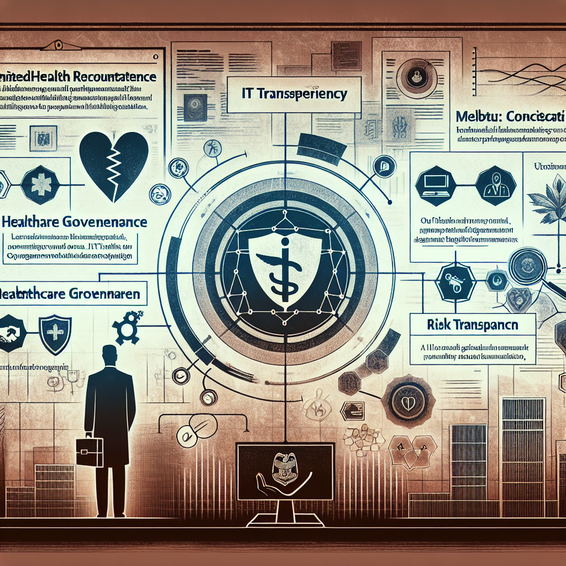When UnitedHealth Group, a leader in global health care and well-being, proactively addresses a Department of Justice investigation on its Medicare operations, it’s a wake-up call for the entire industry. The company’s robust response, built on transparency, independent audits, and open dialogue with regulators, sets a powerful benchmark for healthcare IT governance and risk management. Let’s break down what their approach teaches us and how IT professionals can turn these lessons into strategic advantages.
Key Lessons Learned from the UnitedHealth Group Investigation
The high-profile DOJ inquiry highlights how no organization—no matter how large—can afford to ignore regulatory risk, data integrity, or auditability in healthcare operations. UnitedHealth Group’s response wasn’t just about damage control; it demonstrated best practices that translate beyond compliance and into everyday IT leadership:
- Proactive engagement with regulators: Addressing potential issues upfront, rather than reacting after pressure builds, builds trust and credibility with oversight bodies.
- Transparent risk assessment: Employing third-party reviews and independent audits signals a clear commitment to transparency, which is increasingly expected by customers and regulators alike.
- Comprehensive stakeholder communication: UnitedHealth’s inclusive engagement—spanning consumers, providers, shareholders, and communities—is a reminder to keep all parties informed during critical incident response.
The IT industry should take note—especially as managed care, pharmacy platforms, and Medicare solutions become more complex. Regulatory scrutiny and the risk of external investigations will only increase as data-driven healthcare grows. Explore practical compliance measures in our Security section and guide to cyber-resilient IT environments.
Impact and Analysis for Healthcare and IT Organizations
UnitedHealth Group’s processes underscore the broader impact of strong accountability structures in complex IT-driven healthcare companies. Here’s what stands out for the sector, regulators, and business leaders:
- Greater transparency leads to improved trust: By commissioning third-party reviews and publicizing outcomes, organizations can demonstrate real integrity to stakeholders.
- Preparedness minimizes disruption: Proactive compliance, established audit trails, and robust documentation make investigations less disruptive and quicker to resolve.
- Diversity and inclusion: UnitedHealth’s emphasis on inclusive, equitable workplaces can help reduce risk of compliance issues tied to cultural or organizational silos.
For IT leaders, this incident is a stark prompt to reevaluate risk management, particularly when handling sensitive programs like Medicare Advantage or pharmacy benefit services. Don’t miss our piece on cyberattack readiness for core technical controls to pair with compliance efforts.
Actionable IT Solutions: How Tech Pros Can Lead on Governance and Risk
IT professionals are on the frontline of healthcare governance. These practical steps are essential for maintaining transparency, managing regulatory risk, and supporting business growth:
- Automate compliance monitoring: Use platform-native tools or dedicated GRC (governance, risk, compliance) suites to track changes, maintain audit trails, and flag anomalies in real time.
- Implement robust risk assessment frameworks: Regularly review processes through external audits and collaborate with third parties to cover blind spots.
- Secure stakeholder data: Strengthen access restrictions, enforce multi-factor authentication methods like passkey and 2FA, and continuously update user privileges.
- Transparent communication: Prepare clear response plans for communicating with customers, partners, and regulators in crisis scenarios.
Additionally, leverage AI-powered analytics to monitor for policy deviations and automate reporting, reducing manual overhead and improving accuracy. Find more on digital transformation tools in our digital transformation resources.
Conclusion: Setting a New Standard for Trust and Compliance in Healthcare IT
The UnitedHealth Group experience makes one thing clear: proactive transparency, rigorous external review, and open communication set a standard the industry can’t afford to ignore. IT and business leaders should champion these principles, making compliance, stakeholder engagement, and risk reduction a part of daily operations, not just crisis response. As regulatory expectations grow, the organizations that lead on governance and IT transparency won’t just survive—they’ll thrive.
